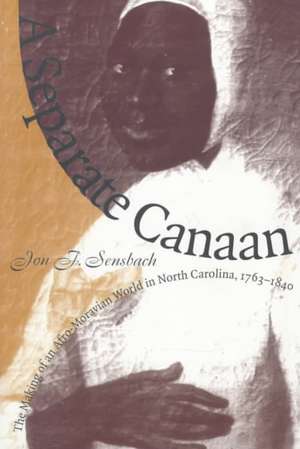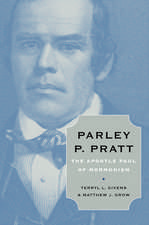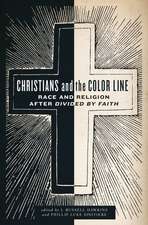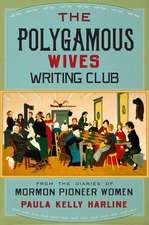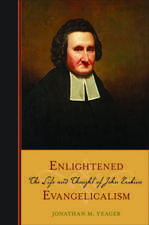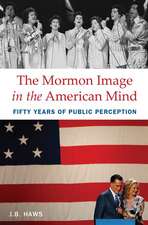Separate Canaan: Published for the Omohundro Institute of Early American Hist
Autor Jon F. Sensbachen Limba Engleză Paperback – 28 feb 1998
Din seria Published for the Omohundro Institute of Early American Hist
-
 Preț: 351.11 lei
Preț: 351.11 lei - 27%
 Preț: 1990.99 lei
Preț: 1990.99 lei -
 Preț: 341.86 lei
Preț: 341.86 lei -
 Preț: 472.89 lei
Preț: 472.89 lei -
 Preț: 279.34 lei
Preț: 279.34 lei -
 Preț: 372.46 lei
Preț: 372.46 lei - 15%
 Preț: 485.48 lei
Preț: 485.48 lei -
 Preț: 413.83 lei
Preț: 413.83 lei -
 Preț: 240.65 lei
Preț: 240.65 lei -
 Preț: 432.77 lei
Preț: 432.77 lei -
 Preț: 345.89 lei
Preț: 345.89 lei -
 Preț: 396.68 lei
Preț: 396.68 lei -
 Preț: 313.45 lei
Preț: 313.45 lei -
 Preț: 346.88 lei
Preț: 346.88 lei -
 Preț: 394.77 lei
Preț: 394.77 lei -
 Preț: 313.45 lei
Preț: 313.45 lei -
 Preț: 348.61 lei
Preț: 348.61 lei -
 Preț: 317.31 lei
Preț: 317.31 lei -
 Preț: 305.77 lei
Preț: 305.77 lei -
 Preț: 214.31 lei
Preț: 214.31 lei -
 Preț: 269.62 lei
Preț: 269.62 lei -
 Preț: 349.17 lei
Preț: 349.17 lei -
 Preț: 315.79 lei
Preț: 315.79 lei -
 Preț: 362.49 lei
Preț: 362.49 lei -
 Preț: 359.23 lei
Preț: 359.23 lei -
 Preț: 488.18 lei
Preț: 488.18 lei -
 Preț: 308.07 lei
Preț: 308.07 lei -
 Preț: 403.21 lei
Preț: 403.21 lei -
 Preț: 345.50 lei
Preț: 345.50 lei -
 Preț: 305.57 lei
Preț: 305.57 lei -
 Preț: 335.82 lei
Preț: 335.82 lei -
 Preț: 308.66 lei
Preț: 308.66 lei -
 Preț: 306.16 lei
Preț: 306.16 lei -
 Preț: 267.51 lei
Preț: 267.51 lei -
 Preț: 345.72 lei
Preț: 345.72 lei -
 Preț: 307.89 lei
Preț: 307.89 lei -
 Preț: 309.41 lei
Preț: 309.41 lei -
 Preț: 330.81 lei
Preț: 330.81 lei -
 Preț: 268.30 lei
Preț: 268.30 lei -
 Preț: 395.31 lei
Preț: 395.31 lei -
 Preț: 468.65 lei
Preț: 468.65 lei -
 Preț: 310.02 lei
Preț: 310.02 lei -
 Preț: 399.57 lei
Preț: 399.57 lei -
 Preț: 308.66 lei
Preț: 308.66 lei -
 Preț: 402.83 lei
Preț: 402.83 lei -
 Preț: 246.76 lei
Preț: 246.76 lei -
 Preț: 303.27 lei
Preț: 303.27 lei -
 Preț: 335.82 lei
Preț: 335.82 lei -
 Preț: 315.96 lei
Preț: 315.96 lei
Preț: 362.71 lei
Nou
Puncte Express: 544
Preț estimativ în valută:
69.40€ • 72.66$ • 57.43£
69.40€ • 72.66$ • 57.43£
Carte tipărită la comandă
Livrare economică 07-21 aprilie
Preluare comenzi: 021 569.72.76
Specificații
ISBN-13: 9780807846988
ISBN-10: 0807846988
Pagini: 368
Dimensiuni: 155 x 235 x 24 mm
Greutate: 0.6 kg
Ediția:New.
Editura: University of North Carolina Press
Seria Published for the Omohundro Institute of Early American Hist
ISBN-10: 0807846988
Pagini: 368
Dimensiuni: 155 x 235 x 24 mm
Greutate: 0.6 kg
Ediția:New.
Editura: University of North Carolina Press
Seria Published for the Omohundro Institute of Early American Hist
Textul de pe ultima copertă
In eighteenth-century North Carolina, German-speaking settlers from the Moravian Church founded a religious refuge - an ideal society, they hoped, whose blueprint for daily life was the Bible and whose Chief Elder was Christ himself. As the community grew, so did its demand for labor, and Moravians began buying slaves to help build and operate their farms, ships, and industries. The Moravian Brethren believed in the universalism of the gospel and baptized dozens of African Americans, who became full members of tightly knit Moravian congregations. For decades, white and black Brethren worked and worshiped together, far removed from the sprawling plantations to the east. Black Moravians spoke, read, and sang in German, played Moravian music on classical instruments, and shared communal dormitories with white Moravians. According to Jon Sensbach, the Moravian social experiment demonstrated the fluidity of race in an age when Revolutionary rhetoric championed the rights of man - even though white Brethren never abandoned their belief that black slavery was ordained by God.
